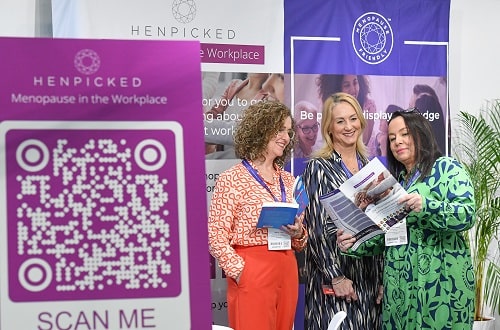Bullying can have a detrimental effect on an employee’s mental wellbeing, but there are ways of preventing it – such as creating a culture that prioritises staff wellbeing over performance.
Features
Beating the bullies
Unjustified criticism, gossip, name-calling, false allegations, being ignored and belittled are all actions that embody the experience of bullying. When people at work experience these behaviours regularly over a sustained period of time, they become victims of bullying. This experience is deeply unpleasant for people and is often made worse when there is no clear path to resolution.
‘Report the behaviour’ is one suggestion made to bullying victims; however, this option is beset with difficulties: the organisation may not listen, the perpetrator may retaliate, the bullying may be difficult to prove, and there may not be support available. It is little wonder that people more often try to avoid the bully, rather than report it to management.
 Organisations, teams and individuals all have a role to play in establishing working environments that do not tolerate bullying. Photograph: iStock
Organisations, teams and individuals all have a role to play in establishing working environments that do not tolerate bullying. Photograph: iStock
So what kind of steps can organisations and managers take to prevent workplace bullying?
Bullying is often viewed as an interpersonal problem (“If that person performed better, I wouldn’t need to bully them!”, “We just need to weed out the bad apples and then everything will be fine”). However, organisations, teams and individuals all have a role to play in establishing working environments that do not tolerate bullying.
The organisational response
Is your organisation a place that rewards bullying behaviour? Would you trust your HR department to act fairly if you reported it? If you work in a place where managers use intimidation to rid themselves of under-performing staff, where ruthlessness is rewarded, or where HR tend to side with the most powerful people in the room, your organisation is likely fostering conditions that encourage bullying.
Quickly changing organisational climates and cultures is difficult. However, evidence suggests that bullying occurs less in organisations that prioritise employee wellbeing over performance, that emphasise bullying is not tolerated, that have fair and trusted procedures for resolving conflict, and that minimise stressful job characteristics (such as role conflict and role ambiguity).
For new and growing organisations, developing a bullying policy is a good place to start. To be effective, policies should clarify what is meant by bullying and other unacceptable behaviours, encourage informal resolution, and clearly specify the formal resolution process. Policies also need to be clearly communicated to every member of the organisation and new starters should be made aware of the policy during induction procedures.
The team response
Social support has been consistently shown to protect people from the worst effects of bullying, as the benefits of social support are more fully realised when people are in distress. This is because supportive colleagues can provide consolation, a listening ear, and help make more informed decisions on how to resolve issues.
Methods of encouraging social support within a team are likely to vary across organisational contexts and across teams of different sizes. However, research suggests that two practices are required for compassion to abound in workplaces. First, high quality connections can be established by recognising people’s contributions, celebrating successes and personal events (for example, birthdays, weddings), by making joint decisions, by offering help, and by immediately addressing problems or misunderstandings.
Second, although work should be the primary function of a workplace, by sharing and discussing non-work information people can signal to others why they might be having an ‘off-day’. These practices humanise the workplace and may promote empathetic concern from colleagues, who may be able to provide support and advice.
In addition, expressing gratitude has been found to decrease workplace mistreatment.
The individual response
As individuals, we may ask what we can do to stop bullying at work when we see it happening to others or ourselves.
The best methods of intervening vary across situations, but bullying can occur when small issues escalate into entrenched conflict, which means that responding effectively when conflict initially rears its head may be the difference between quick resolution and long-term dispute.
Evidence suggests that bullying occurs less in organisations where people seek to find mutually beneficial solutions to conflict. Therefore, training all employees at all levels of the business to be ‘conflict competent’ in a way that enables them to resolve disagreements informally through conversation is seen as an effective approach.
However, even the most diplomatic people will struggle to resolve disagreements when they work in a toxic organisational environment, as it may not be within the organisation’s or perpetrator’s interests to address the core issue.
For example, if an individual complains about their overbearing workload, it may not suit the manager or organisation to find a way of reallocating some of that workload. For these reasons, senior leadership and managers should think carefully about the ways that they respond when employees try to raise issues.
Initiatives that encourage employee voice, such as the ‘Freedom to Speak Up Guardians’ (trained individuals who support workers in organisations like the NHS to speak up about anything that is affecting their working lives), open door policies, and managers who actively solicit employee concerns are ways of demonstrating that employee concerns will be listened to and appreciated.
By acting on employee concerns, organisations may be able to prevent a host of problems – not just bullying – and such actions may prevent employees feeling that they have to blow the whistle in a very public manner.
These are just some of the ways managers can act to prevent bullying. To further support managers tasked with actively preventing bullying, I have been working with colleagues to develop training that aids anti-bullying efforts. If you would like to hear more about this, please email me at [email protected]
We can provide this training free of charge, but we would like to evaluate its effectiveness.
Dr Sam Farley is an associate professor in organizational psychology researching workplace bullying and mistreatment. Contact him here
Workplace conflict research – could you help?
Along with colleagues at Acas, researchers from the universities of Huddersfield, Leeds and Loughborough have developed a conflict de-escalation workshop they wish to pilot in some large organisations to assess if it is successful in helping people to resolve conflicts informally, reduce the number of formal grievances and (hopefully) reduce bullying and harassment.
The aim is to increase employees’ ability to successfully navigate conflicts, so that the small things that bother them don’t escalate into protracted, long-term conflicts which cause ill-health, absenteeism, and expensive and stressful formal grievance procedures. The researchers want to work with organisations to think about the procedures they can adopt to make informal conflict resolution easier for employees.
The workshop would be delivered free of charge and run for three to four hours. The researchers would also like to conduct some research among the participating organisations (for example, surveys, interviews), to examine whether participating in the workshop actually increases employees’ abilities to resolve conflicts.
If you are interested, please email Dr Sam Farley with the word ‘workshop’ in the subject line: [email protected]
Cyberbullying at work – distribute the survey
Researchers from the universities of Leeds, Loughborough and Northumbria are recruiting organisations to take part in a short confidential survey on cyberbullying and bullying at work.
The survey aims to identify:
- The prevalence of cyberbullying and face-to-face bullying
- How these forms of bullying affect employee mental health
- The factors most responsible for these different forms of bullying.
Participating organisations will be asked to distribute a 10-minute survey to employees twice over a six-month period. Organisations will be able to review the survey before distributing it to staff.
Participating organisations will receive a tailored feedback report on:
- The likely prevalence of bullying in the organisation
The causes and impact of bullying within the organisation
An evidence-based review of existing strategies for managing face-to-face and cyberbullying.
If preferred, the researchers will also feedback the information in presentation form.
An organisation’s details will remain confidential and anonymous at all times.
If you are interested, please email Dr Sam Farley with the words ‘survey study’ in the subject line: [email protected]
FEATURES

Why line managers play a vital role in workplace wellbeing
By Marcus Herbert, British Safety Council on 03 September 2023
The behaviours of line managers can have a positive or negative impact on employee health, wellbeing and engagement, so it’s vital managers get staff feedback on whether their management style is supportive or negative, and have regular check-ins so workers can raise concerns about their wellbeing.

Watercooler Event to hone in on eight trends in employee health and wellbeing
By Claire Farrow, Make a Difference Events & Media on 15 April 2024
The free-to-attend Water Cooler Event at ExCeL London on 23–24 April will see more than 6,000 workplace experts coming together to explore the latest thinking, solutions and best practice for supporting and boosting employee wellbeing, diversity and workplace culture.

Sedentary working and how to combat the ‘sitting disease’
By Gavin Bradley, Active Working on 05 April 2024
Prolonged and excessive sitting poses a major risk to our health, but the Get Britain Standing campaign and On Your Feet Britain Day on 25 April are a great way of encouraging workers to sit less and move more.



